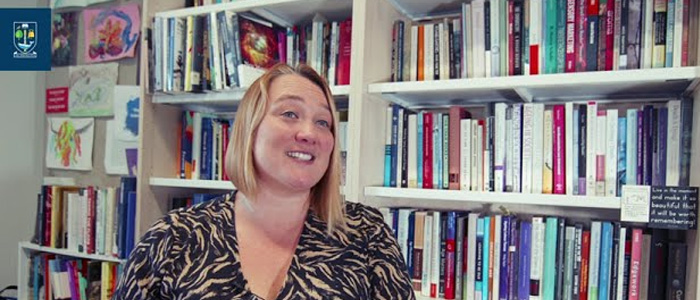University of Glasgow

Menopause research
We're dismantling menopause stigma so everyone feels empowered at work
One of the first studies in the world to explore employees’ lived experience of menstrual health and menopause is shaping national policy.
The study by Professor Kathleen Riach of Glasgow’s Adam Smith Business School has informed a new workforce policy to help address health inequalities in the labour market.
"Advancing Menopause and Menstrual Health in Organisations: A National Study of Employees in Health and Social Care" launched in October 2023, in collaboration with the Scottish Government, is based on survey responses from over 6,000 NHS Scotland employees.
The study seeks to understand the needs of women and people who menstruate to create an environment where those experiencing menopause or menstruation feel supported and valued in the workplace.
Most employees can continue to work through menstruation or menopausal transition without having a disruptive impact on their jobs. However, for others, menstrual and menopausal health experiences can have a negative impact on their working lives while cultural, structural or institutional conditions can exacerbate these experiences.
The study identified five ways workplaces could demonstrate both period-positive cultural practices and positive attitudes towards menopausal transition - summarised by the acronym MAPLE:
Microleave: Flexibility to manage the episodic nature of menstruation and menstrual symptoms is fundamental to improving employee experiences of menstrual health at work.
Allyship: Creating a positive and person-centred environment on the work floor through constructive conversations is key to challenging stigma and enabling work to carry on ‘as usual’.
Physical environment: The facilities available in a workplace environment have an impact on how sustainable work is when menstruating.
Line management: Line management and direct supervisor relations are seen as fundamental to viewing menstrual health as either problematic or an area that can be positively discussed and worked through in the workplace.
Education and awareness: Workplace education and awareness around menstruation should be seen as a positive step, with an emphasis on line management training, as well as training for all colleagues.
Professor Riach said: "What we have with women, and particularly women going through the menopause, is a really important talent pool in the workforce. Ensuring that people can work longer and healthier working lives is really important, and ensuring that the research we do helps inform policy that can support that is a fantastic part of our job."
Menopause & menstrual health
Professor Kathleen Riach discusses the process and conclusions of one of the first studies in the world to explore employees' lived experiences of menstrual health and menopause at work.


